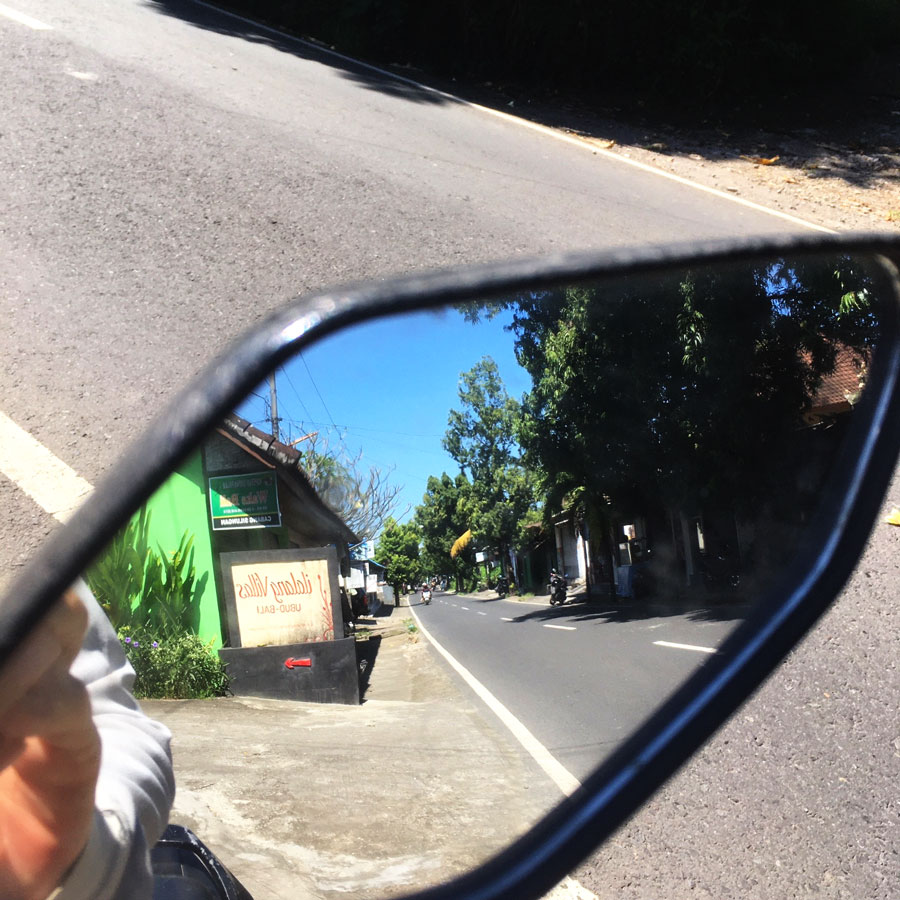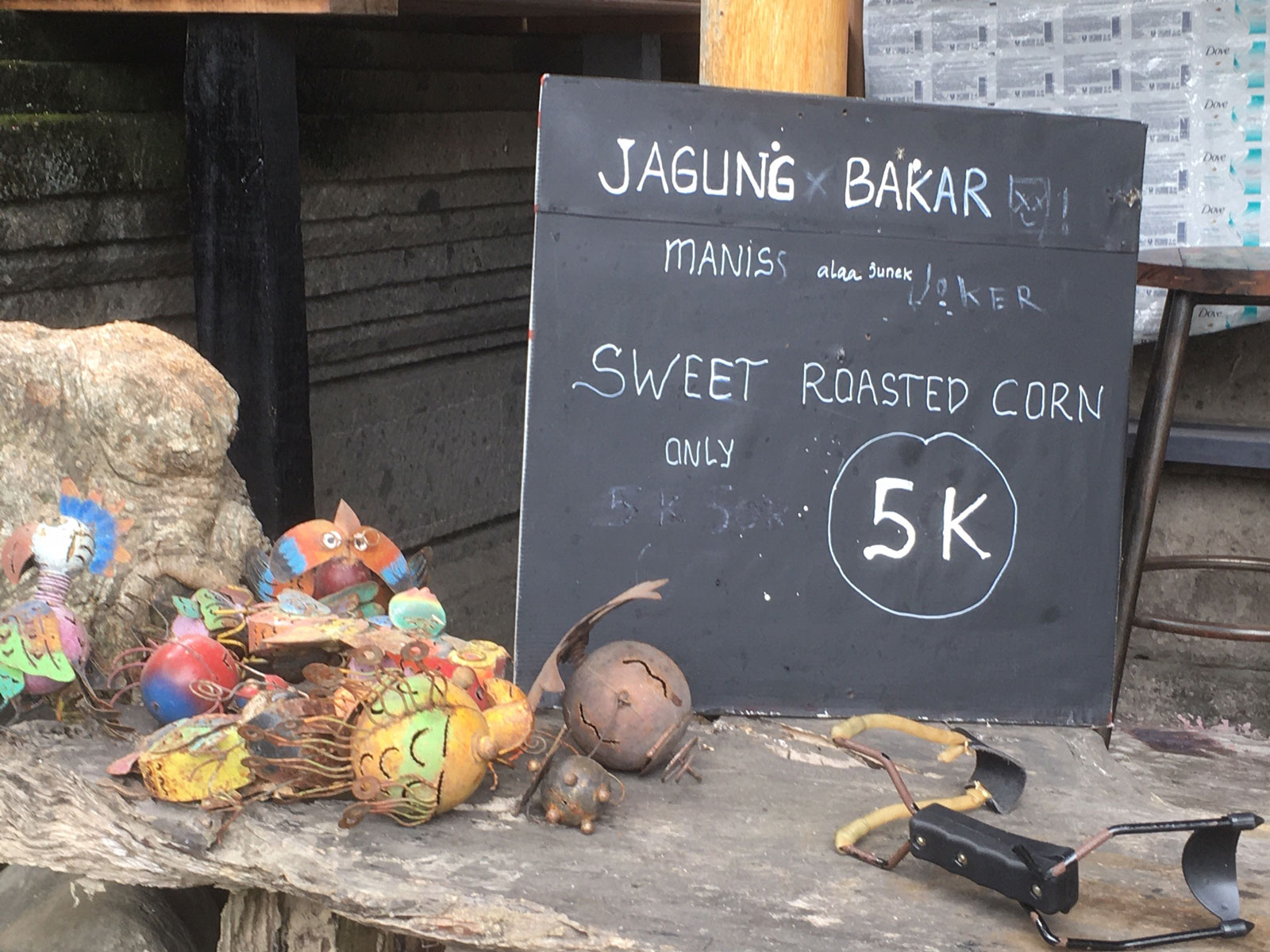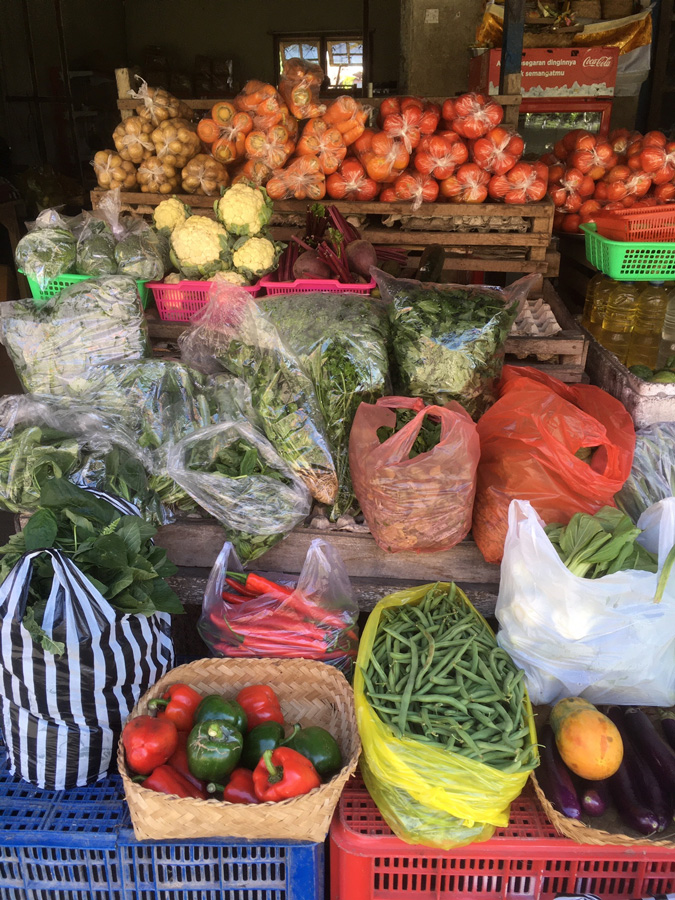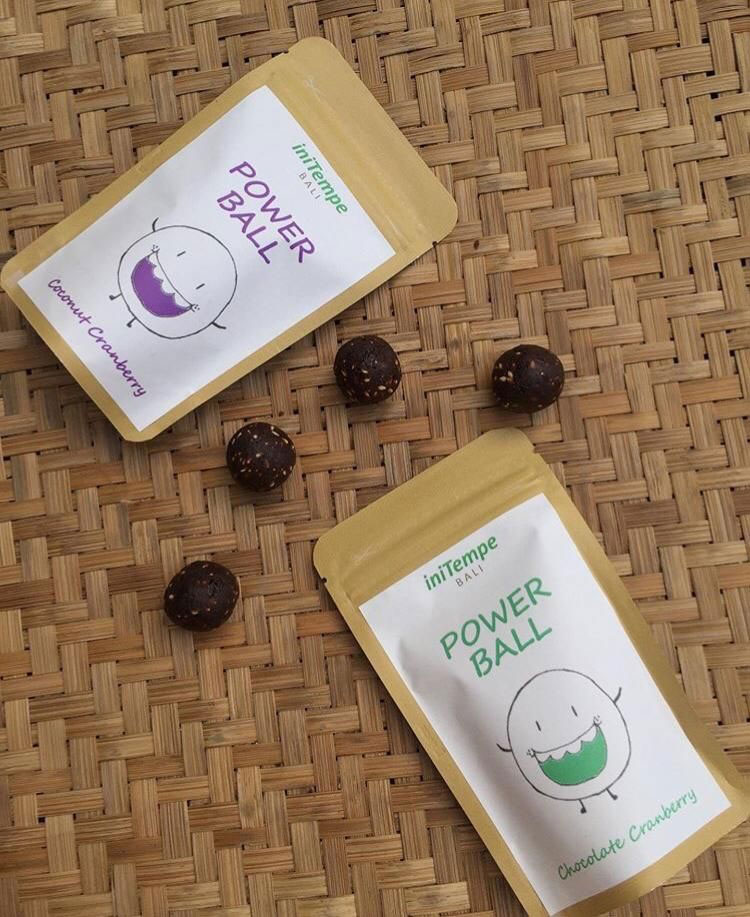A short 25 minute motorcycle ride from Ubud down to Denpasar in Bali is the family compound of Brenda Ritchmond. She is the owner of Bali Buda, a chain of healthy food cafes and stores on the Indonesian tourist island.
Brenda’s customers are mostly expats who have stayed or live in Bali, and increasingly, middle-class Indonesians. Brenda’s sales have dropped in recent months, but not so much that she has had to lay off staff, as most shops and restaurants have done in the area. Beyond sales figures, Brenda discussed a pressing topic for the residents of Bali right now – food security and supply chains.
Balinese farmers are among the many badly hit by the downturn in arrivals on the resort island, empty of visitors because of the pandemic. With roughly 70% of the island’s economy dependent on tourism, this has forced many Balinese, with savings that will last only for a few months, to rethink how they feed themselves.
All Brenda’s farmers are ok, as Bali Buda buys from small-scale organic growers and makers. However, she said many larger-scale farmers who grew for the tourism trade have destroyed their crops, having no way to sell them. Even more worrying, she said, many are not replanting. When hotels and big restaurants reopen in the coming months, they may be competing directly with Balinese locals for food, potentially meaning shortages and higher prices when tourists return.
Traffic is light. Sometimes, rounding a bend, the road stretches empty ahead with the APV (All Purpose Vehicles) tourist shuttles that once jammed the roads of Bali gone.
Pre-pandemic, drivers on motorcycles carried chickens with feet tied together headed for ceremonial sacrifice, brightly painted masks, mounted acrylic paintings, huge piles of jewel-tone sarongs balanced precariously and more – all the manufactured stuff that fed a growing market of overseas tourists.
Now the bikes carry utilitarian items: small neon-green LPG tanks; large bottles of water; plastic sacks of rice: ten, twenty, even fifty-kilo bags; green sayur, tempeh or bright red chilli in clear plastic bags; and still chickens, but now likely destined for cooking pots. Moreover, with most tourist restaurants and hotels closed, trucks carrying caged hens or pigs for slaughter have become an increasingly rare sight.

Roughly every fifth bike now seen on the roads is a GoJek driver, with their distinctive black and green jackets and bright green and white logo helmets, ferrying packages, take-away food, groceries or very occasionally, people.
Pre-pandemic, GoJek drivers often wore their jackets inside out, and used plain helmets. They feared physical and verbal assault from tourism drivers who accused them of ‘stealing the rice from our mouths’ as locals, tourists and expats increasingly switched to using the lower-priced app-based ride and delivery service.
Now, green-and-black drivers swarm the roads wearing their colours openly, with Balinese families urging unemployed drivers among their kin to sign up with GoJek.
I’m thinking about buying a solar power setup so we can go completely off the grid. Just in case
Back at Brenda’s compound it was a hive of activity. Kids running and yelling, workmen and helpers walking back and forth, hens, roosters, chicks, cats and dogs everywhere. A large space behind the house is given over to permaculture gardens. Brenda said the pandemic has given her “the kick” to take the last steps to total sustainability and she was having an aquaponics system – a low-labour, small-space system that grows fish and vegetables in a symbiotic environment – installed.
“If everything shuts down, our family will be OK – we’ll have fish, chicken, eggs and vegetables,” she said. The system needs one person to maintain it, compared to the four to six needed to produce the same calories on land. “I’m thinking about buying a solar power setup so we can go completely off the grid. Just in case.”
The expert that Brenda hired to install the system, Jai Laiden of Bali Grown Aquaponics, is having a bumper year. For ten years, he said, people told him he was crazy: ‘Paying money to put in fish tanks and hydroponics? We can just go to the markets.’ Now, as Bali’s cramped, crowded traditional markets are seen as potential breeding grounds for Covid-19, he said his customer base has exploded.
Another client of Bali Grown Aquaponics, Ibu Lili Wira from IkatBatik, is setting up a system in her showroom on Monkey Forest Road. The shop and family home are in an unfinished abandoned hotel in the heart of Ubud, where she is busily turning the top floors over to aquaponics. No tourists means no one is buying her usual merchandise of blue and white fabrics and traditional woven textiles.
Asked her if she is growing for her family or to sell, she shrugged. “I am just hoping to produce enough to feed all of us, but if we have more, then I’ll consider selling it,” she said.

Brenda’s daughter Jasmine is Bali Buda’s social media manager. She said that many Indonesian musicians are leading a back-to-the garden movement, encouraging people to plant their own food, even in small spaces, and organising through their social media accounts. As musicians were affected early and hard by tourism drying up, they pivoted to more sustainable food sources before many others.
“Musicians can only play and earn money if they have an audience, so all of them have lost their income,” Jasmine said.
Popular musicians such as Fendy Rizk have posted compost and seedling photos on their Instagram feeds. Meanwhile, Gede Robi from Indonesia’s popular grunge band, Navicula, has been getting ready for this moment for years.
He and his wife, Lakota Moira, run an environmental media company, Akarumput, and Robi spends a lot of time travelling and filming with environmental groups, such as Greenpeace Indonesia. The pair own farmland in West Bali. If everything falls apart, they said, the family will go back to live on the land.
Charitable initiatives centring around food distribution to Bali’s needy have begun springing up around the island’s creative community in recent months too.
Rumah Sanur is a cultural hub, originally set up in 2015 to counter Bali’s heavy dependence on tourism by developing the island’s creative industry. The venue hosted 400 live events in 2019: art exhibits, concerts, social activities and more. But in recent months, Rumah Sanur has pivoted to become a food distribution and social assistance centre, working with local community groups.
Pasar Rakyat, a non-profit that links small farmers with the public, and organises trucks of food to be brought down from distant farms, uses Rumah Sanur as one of their distribution points. Indonesians pay Pasar Rakyat for fresh produce on a donation basis, and it’s free if they have no money. The farmers make less than in the past, but they’re still able to get money for their crops.


For years, I’ve been giving away seedlings and offering to teach people permaculture … They used to say, ‘Why should I bother growing food when I can just drive to the market?
Bali has an unusual system of land management. The village banjar (council) provides residents with village land to live on for free while individual Balinese or families own their rice fields, traditionally the means of production.
Originally, Balinese had deep family compounds, with people living at the front while the back was kept for growing food. But the trend of building houses in these garden spaces to rent on Airbnb has swept over Bali in recent years. Many Balinese went into debt to build – now Airbnb houses sit empty or rent at rock-bottom rates.
Eka has a multi-unit Airbnb house in her compound. Unable to find renters, she was worried about the mortgage, but also the plight of those without a community support structure. “We have the village to help us, but you foreigners are on your own,” she said, thrusting a bag of tangerines forward.
The banjar provides weekly food boxes for each Balinese family in the village – the monthly fees they paid in better times coming back to help them, an age-old social security system. But even banjar funds are running low, and Eka said the government only provides 600,000 IDR ($41) per month in relief to support families.
Poor villages in Bali have been receiving food donations from local NGOs almost since the beginning of the pandemic. Brenda said that her local village refused financial help at the beginning of the pandemic, saying they didn’t need it. Now, she said, they are asking her for cash donations.
Riding back towards Ubud, almost every convenience store now has a table in front selling things like papayas, sayur, durian, eggs or tofu and tempeh.
It seems everyone is pivoting to selling or making food, with new warungs (tiny eateries) that weren’t there a few weeks before springing up – often just a folding card table under a tarp hanging from a tree. Bali Buda’s Jasmine said three new warungs have opened in her village alone in recent months. Small artisan producers, such as Benny from Ini Tempeh, have also launched new products – in Benny’s case, tempeh energy balls.
At the Saturday organic market back in Ubud, which resumed recently with strict social distancing measures in place, a woman from the Indonesian Disaster Environment and Permaculture Foundation (IDEP) was giving away plants. The change in attitudes towards food in Bali has been plainly evident to her in recent months.
“For years, I’ve been giving away seedlings and offering to teach people permaculture,” said the IDEP trainer. “They used to say, ‘Why should I bother growing food when I can just drive to the market?’”
“Now, they’re showing up at the office and asking me to come and teach them. Everyone is stressed about food. They even show up at my house.”


